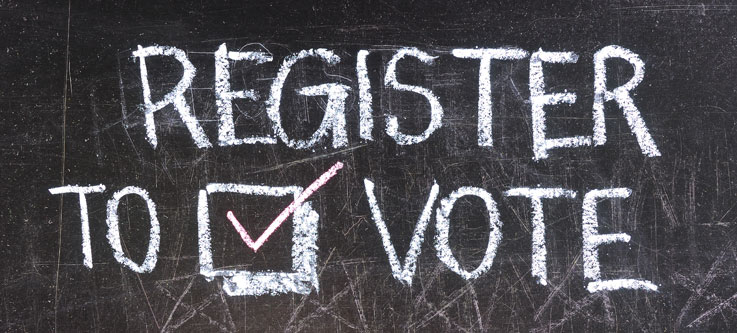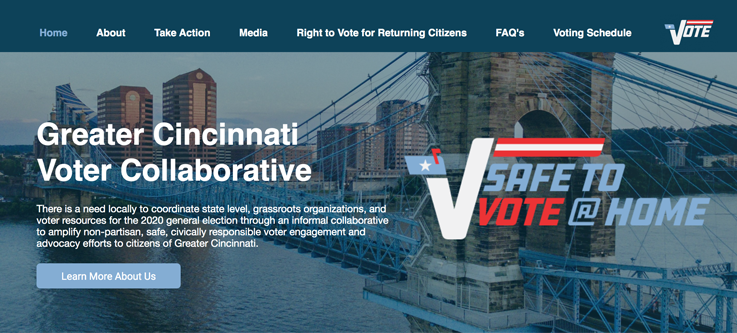Community Health Workers: You can address health disparities through voting

Those of us in health care circles already know there are many factors which impact a person’s health. It’s not just about access to insurance or ability to make a doctor’s appointment. Secure housing, access to food, quality education, job status and institutionalized racism are just a few factors which impact a chance at a healthy life.
Who has access to secure housing, food, education, etc, is not accidental. These basic rights are determined by our public policy–our local and national laws. We elect the people who will advocate for our interests.
Quite unfortunately, those facing barriers to health are often also facing barriers to voting. Community Health Workers are particularly poised to promote participation in the voting process. A CHW can address the voting barrier so the client can choose the policies which best bolster her own health. The process empowers. The same way becoming employed empowers. Or obtaining a home empowers. Our empowerment leads to better health outcomes.
What a CHW can do to help the voting process
Let’s begin by:
- Ensuring clients understand the importance of voting; how it impacts their health.
- Ask if they are registered to vote; assist with registration, if not.
- Follow up before an election to help arrange transportation to the polls or check they have mailed in their absentee ballot.
Who is eligible to vote?
As listed by the Ohio Secretary of State. You are qualified to register to vote in Ohio if you meet all the following requirements:
- You are a citizen of the United States.
- You will be at least 18 years old on or before the day of the general election.
- You will be a resident of Ohio for at least 30 days immediately before the election in which you want to vote.
- You are not incarcerated (in jail or in prison) for a felony conviction.
- You have not been declared incompetent for voting purposes by a probate court.
- You have not been permanently disenfranchised for violations of election laws.
Felony voters: From the list above #4 is important to note. Other states forbid felons from voting or have put in place steep penalties. In Ohio, if you have a felony, and not currently incarcerated, you are eligible to vote. The ACLU Ohio chapter has more voting resources for those convicted of a crime.
How to register to vote
- Online at Ohio’s Online Voter Registration System
- By mail by downloading this form
- In person (see list directly below)
In person voter registration locations:
- The Hamilton County Board of Elections, 4700 Smith Rd., Cincinnati, OH 45212
- The office of the registrar or any deputy registrar of the Ohio Bureau of Motor Vehicles
- Public libraries
- Public high schools or vocational schools
- County treasurer’s offices
- The office of the Secretary of State
- The office of any of the 88 county boards of elections
- Offices of designated agencies, including: The Department of Job and Family Services; The Department of Health (including the Women, Infants and Children (WIC) program); The Department of Mental Health; The Department of Developmental Disabilities; Opportunities for Ohioans with Disabilities; or The office of any state-assisted college or university responsible for providing assistance to disabled students
Registration deadlines
You must register or update your voter registration no later than 30 days prior to an election. The deadline to register to vote for the upcoming November 5, 2024 General Election is October 7, 2024.
If you register or update your information after the deadline, the change will apply for the next election.
HELPFUL ONLINE RESOURCES & DATA
- Elections and voting in Ohio: Ohio Secretary of State
- Voter turnout demographics data: United States Elections Project
- Voting in America: a look at the 2016 presidential election: United States Census Bureau
- Addressing health disparities through voter engagement: Annals of Family Medicine
- Health care policy is undermined by voting barriers: The Century Foundation



